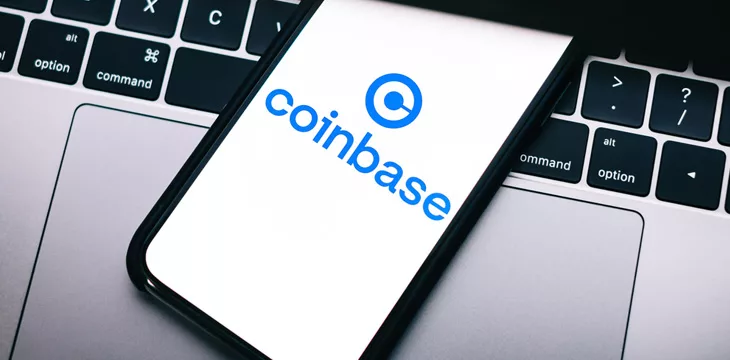|
Getting your Trinity Audio player ready...
|
The U.S. Securities and Exchange Commission (SEC) has asked the federal court in charge of its case against Coinbase (NASDAQ: COIN) to reject the beleaguered exchange’s attempt to have the case thrown out without a trial, arguing that assets listed on Coinbase clearly amount to securities under U.S. law.
Coinbase had asked for summary judgment back in August, arguing that the subject matter of the case falls outside the SEC’s jurisdiction because none of the assets listed on its exchange were securities ‘as a matter of law.’ In particular, Coinbase argued that the Howey test—which determines whether or not an asset offering is an investment contract and, therefore, a security under U.S. securities law—required some contractual right to profits awarded to the purchasers of the assets.
In the filings made on October 3, the SEC lashed out at Coinbase’s characterization of the Howey test, saying that Howey requires no such thing:
“Howey did not impose any such requirement. And Coinbase cannot cite any case that does. Courts sometimes consider the existence or absence of contractual undertakings as one of many factors in determining whether an investment contract exists. But no court has ever held a formal contract is a prerequisite.”
The SEC is correct, and the record is replete with cases in which an investment contract was found despite no formal contract, including ample judicial commentary that makes clear that no requirement exists. One doesn’t have to leave the digital asset industry to find these examples. In the SEC’s case against Terraform Labs, the judge held that by “stating that ‘transaction[s]’ and ‘scheme[s]’—and not just ‘contract[s]’—qualify as investment contracts, the Supreme Court made clear in Howey that Congress did not intend the term to apply only where transacting parties had drawn up a technically valid written or oral contract under state law.”
Coinbase trying its luck with such an elementary point might seem unusual, but given that the rest of its filing is stuffed to the brim with personal attacks on SEC Chair Gary Gensler and the SEC itself, one gets the impression that Coinbase is willing to try anything to avoid facing up to the SEC’s charges. The strategy is the same as any other digital asset company that has run afoul of the law: blame a lack of clarity, accuse the government agency in question of making a regulatory power grab, and if that fails, fall back on the position that no one ever told them what they were doing was illegal (ignore the trail of successful prosecutions that have been brought against companies dealing in precisely the kind of assets as Coinbase).
Coinbase also tried to argue—no doubt emboldened by the legal theory espoused in the Ripple case—that assets sold on secondary markets cannot amount to securities offerings. The court already poured cold water over that theory when Terraform Labs and Do Kwon tried, with the federal Judge, in that case, saying “That a purchaser bought the coins directly from the defendants or, instead, in a secondary re-sale transaction has no impact on whether a reasonable individual would objectively view the defendants’ actions and statements as evincing a promise of profits based on their efforts.”
The SEC dealt with the same argument in a similarly swift manner:
“At bottom, Coinbase is asking the Court to conclude that crypto asset sales on secondary market platforms are never investment contract sales. That extreme position, which rests on the artificial requirements that Coinbase seeks to persuade the Court to impose, is both unsupported and nonsensical. Under Coinbase’s theory, an issuer could offer and sell a token as an investment contract directly to an investor. Then, on the very same day, with absolutely nothing changing in terms of whether investors reasonably would expect profits based on the efforts of the issuer, that investor could turn around and resell the token on Coinbase’s platform and that transaction would somehow not be the sale of an investment contract. That is not – and cannot be – the law. An investment contract does not simply vanish as soon as it is sold on Coinbase’s platform, nor does the economic reality that makes it an investment contract somehow automatically disappear.”
It’s easy to guess why many digital asset companies had hoped that the courts would run with the now-debunked Ripple reasoning because it lets every illegal securities exchange off the hook entirely unless they can be proven to be the original issuers of a given asset.
Perhaps, unfortunately for the SEC, the non-compliant corners of the digital asset industry are trying their best to take this particular fight out of the courtroom and into the legislature. Coinbase is arguably spearheading this effort, including by releasing a ‘Just the Facts’ report on how Congress needs to step in and introduce rules that prevent agencies like the SEC from having any role in protecting investors from rogue digital asset operators. It’s a strategy that might work by playing off partisan divides within the U.S. government—divides that have already seen legislative attempts to address the digital asset question descend into gridlock.
However, until Congress agrees on a way forward, Coinbase will have to deal with the SEC’s regulatory authority.
Follow CoinGeek’s Crypto Crime Cartel series, which delves into the stream of group—from BitMEX to Binance, Bitcoin.com, Blockstream, ShapeShift, Coinbase, Ripple, Ethereum, FTX and Tether—who have co-opted the digital asset revolution and turned the industry into a minefield for naïve (and even experienced) players in the market.
Recommended for you
British lawmakers of the parliamentary national security committee have called for a temporary ban on political parties receiving donations in
Circle (NASDAQ: CRCL) soared in 2025 thanks to U.S. ‘regulatory clarity,’ but can this momentum survive a ban on crypto

 02-27-2026
02-27-2026 




